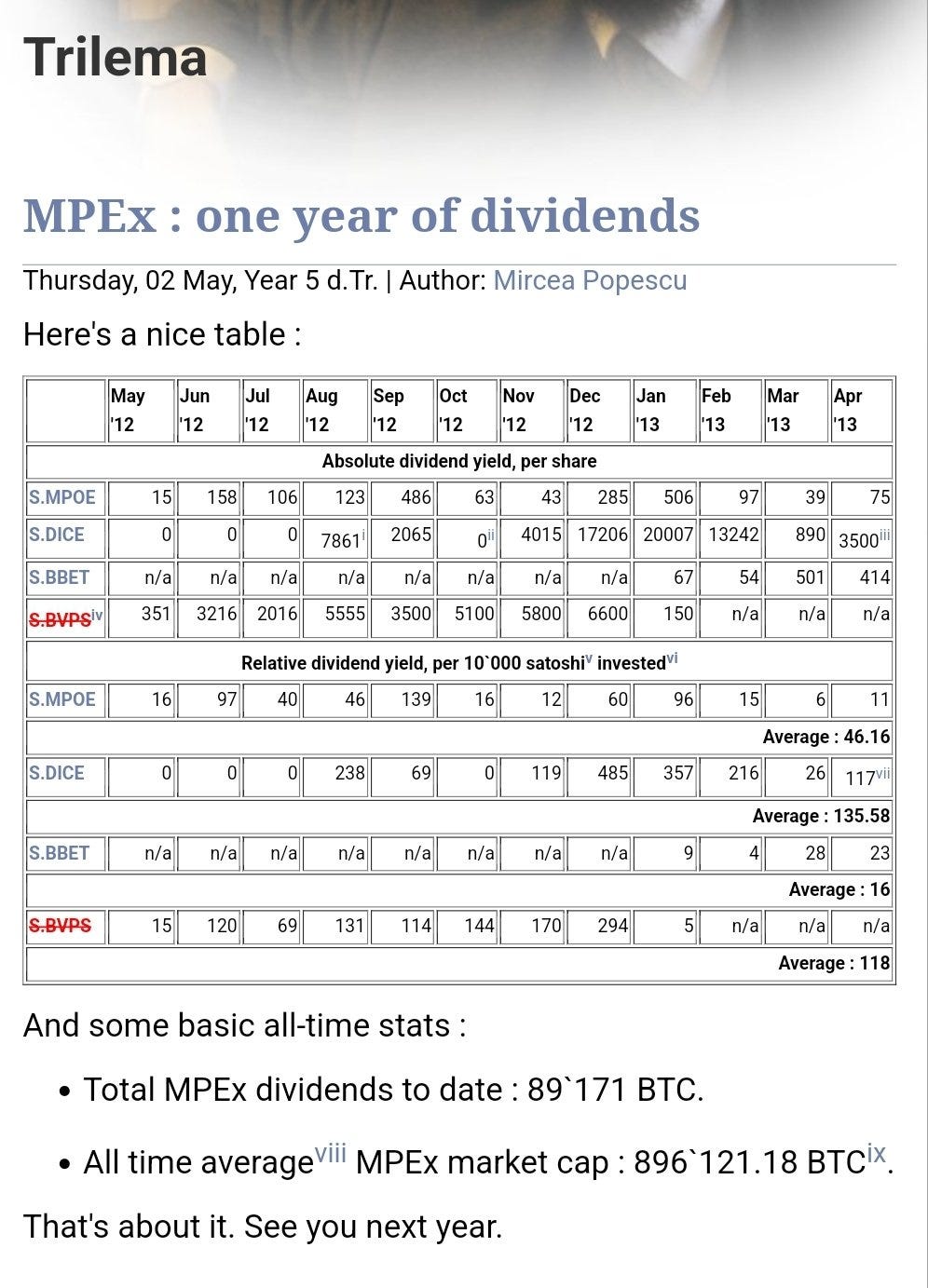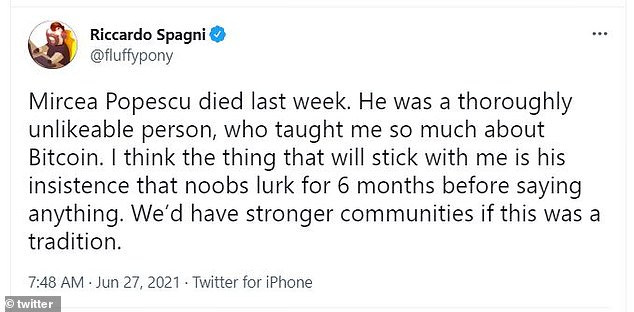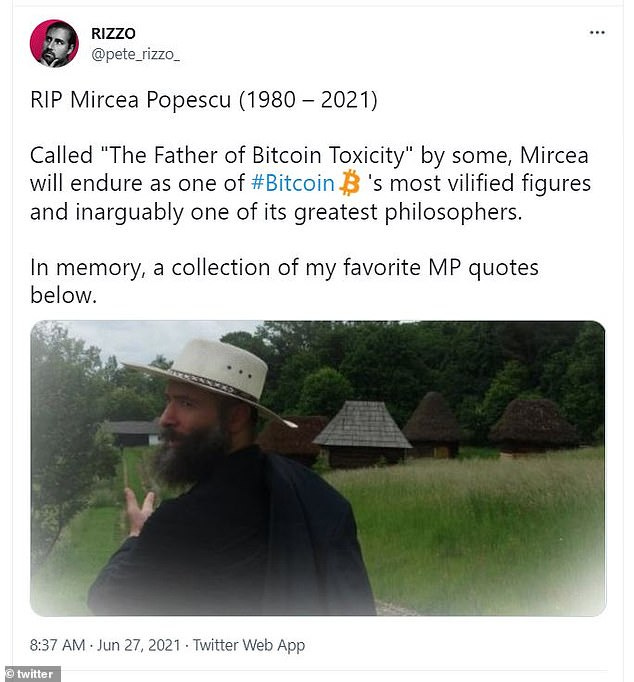"Bitcoin is not here for you to opine about it. Bitcoin is here to profoundly and oft times painfully change your life. Whether you agree or not, whether you give permission or not, whether you think it "acceptable" or "called for" or whatever else. Nobody asked you."
The early days of Bitcoin are littered with stories of eccentric cypherpunks, radical libertarians, scammers, fraudsters, overnight rags-to-riches, and other such strange and controversial figures.
In many ways, these figures and their stories have become legendary. In 2010, Laszlo Hanyecz became infamous for spending 10,000 BTC on two pizzas (with May 22nd coming to be known as Bitcoin Pizza Day), Max Keiser is said to have gifted 10,000 BTC to Alex Jones (but he lost the laptop), Julian Assange made a fortune from Bitcoin donations to WikiLeaks after PayPal cut them off from traditional banking, and Silk Road users found that they’d inadvertently spent future fortunes on mere grams of cocaine.
By and large, the Bitcoin community appears to celebrate the eccentrics and the wild stories of the early days. But when the name Mircea Popescu arises, there are so few people in the space today (particularly those who joined more recently) who have any idea who he was or the role that he played in Bitcoin’s formative years.
“The Father of Bitcoin Toxicity”, who routinely advocated for genocide of those he deemed inferior (including putting bounties on the likes of Andreas Antonopoulos and Peter Wuille), kept a harem of sex slaves, lived in a Romanian castle, and wrote manic blog posts 2-3 times a day about everything from his dislike of Argentinians and strategy guides for online games to musings on pretentiousness and advocacy of sexual violence.
According to Vlad Costea, he was estimated to have owned over 600k BTC and to have bought a castle in Romania, although Popescu himself contended that he owned over one million as recently as March 2021. More conservative estimates are that he owned around 30,000 — either way (and we may never know the real figure), its a lot of BTC.
Who was Mircea Popescu?
“We will hear all about how Bitcoin is 'bad for democracy,' and 'racist,' and everything else. Bitcoin is doing away with big government, and everything big government supports. Everything pretty much is going away, and there's nothing anyone can do about any of it.”
Mircea Popescu was a Romanian entrepreneur, writer, and libertarian who grew up in Cluj-Napoca, Transylvania. He was best known for being the founder of the Mircea Popescu Exchange (MPEx). MPEx charged users a 30 BTC registration fee in order to be able to trade on the platform, and for many years was one of the largest “public” companies in the Bitcoin space. Despite the parabolic rise that Bitcoin’s price experienced in the early years, the registration fee was never lowered from 30 BTC.
MPEx (formerly known as Mircea Popescu’s Options Emporium) faced a lot of criticism for having listed unregistered securities (including shares in the exchange itself) and a heavily inflated valuation. Perhaps the most well-known of Popescu’s interactions arose when he was contacted by the SEC to query him about the nature of his exchange. Rather than give any direct answers, or be helpful in any matter whatsoever, he taunted and mocked the SEC’s authority insofar as it related to Bitcoin, and published the full transcript of his correspondence with them on his blog. The Emails perfectly showcase the level of contempt that he felt for such organisations, and are well worth a read. Despite the fact that MPEx didn’t continue to operate for much longer after this encounter, it is impressive to note that the exchange paid 89,171 BTC in dividends to investors from 2012-2013. This is the largest Bitcoin dividend there has ever been, and there likely won’t ever be a larger dividend paid in Bitcoin terms.
There appears to have been a concerted effort by many in the Bitcoin space to erase Popescu from Bitcoin’s history as much as possible. This is understandable given that some of his views were completely unpalatable with civilised society. His misogyny, as well as his fascination with murder and genocide, would not have made him a welcome dinner guest, and there were many who were concerned that he was a net negative for the community and damaged how Bitcoin was perceived in the wider world.
In the summer of 2021, Popescu was reported to have drowned whilst swimming with two of his sex slaves off the coast of Costa Rica. There was an outpouring of remembrance from the Bitcoin community, but it was short-lived, and there were exceptionally few people who had anything positive to say.
Local media stated that he was Polish rather than Romanian, which led many to entertain the possibility that he had faked his own death — many suspected that if anyone were to fake their own death, he’d be just the type. There is a precedent for wealthy Bitcoiners to pass away under highly suspicious circumstances: Gerald Cotten, the Canadian founder of QuadrigaCX, seemingly stole over $200m in crypto from his exchange and then mysteriously “died” of Crohn’s disease in India aged 30. There’s also the recent case of Nikolai Mushegian, the 29 year old who drowned off the coast of Puerto Rico in 2022 only hours after tweeting “CIA and Mossad and paedo elite are running some kind of sex trafficking entrapment blackmail ring out of Puerto Rico and Caribbean islands. They are going to frame me with a laptop planted by my ex gf who was a spy. They will torture me to death.” Shortly after this, Tintian Kullander died in his sleep aged 30, and Vyacheslav Taran died in a helicopter crash in Villefranche-sur-Mer. There’s also the case of “The Crypto Queen”, Ruja Ignatova, who stole $4 billion from investors around the world and became an international fugitive before Bulgarian investigators discovered that she had likely been killed whilst aboard the yacht of the drug kingpin Hristoforos Amanatidis in the Ionian Sea.
What can be learned from Popescu?
"Bitcoin can kill all your friends, and all the people you respect... It can poop in your drink and rape your pets... If lightning strikes where you sit, whether you feel a warm cozy sort of love or the most burning hatred imaginable is strictly irrelevant - electricity stays."
Undoubtedly intelligent, Popescu was one of the few who understood Bitcoin at a high level far before most people had even heard of it. One can compare the prescience of Popescu’s ideas with views held by the likes of Gavin Andresen, who didn’t appreciate the significance of Bitcoin’s innately conservative nature to the same degree. When I started writing this, I wondered why so few people talked about Popescu, given that he clearly played an important role. Most people don’t have the faintest clue who he was.
To my mind, the most significant thing that Popescu represented wasn’t the content of his writings, his business ventures, or his dalliances with the SEC. Rather, the most significant thing about Popescu insofar as Bitcoin is concerned is what he represented. In the UK, our most famous politician Nigel Farage is currently embroiled in a skirmish with the banking establishment who are unilaterally refusing him access to banking services because they don’t like him. Farage is not an extreme figure, but politically-motivated de-banking has become all the more common and ludicrous in recent years — one only has to ask former Chancellor of the Exchequer Nigel Lawson, whose granddaughter (with Down’s Syndrome) was refused a bank account for being a PEP. The fact that someone like Popescu can be so extreme in his views and not made a persona non grata in Bitcoin World only goes to show that Bitcoin works — nobody is excluded, no matter how much of a nutter they might be.
Currently, the Bitcoin community is embroiled in a debate over BIP300. Those amongst the community who are conservatively-minded take the view that there should be no fork if it could introduce any risk whatsoever, since Bitcoin already works. The advocates of BIP300 (most notably Paul Sztorc) believe that not to implement the change would mean that Bitcoin wouldn’t be able to compete with other blockchains effectively, particularly Ethereum.
The toxicity which MP became known for had a significant role to play in the Blocksize War, during which he emphasised his beliefs that anyone nobody should change their Bitcoin client to accept transactions exceeding 1MB, and that nobody had any right to impose a hard fork on others. In a warning to the community, Popescu made the case as to why nobody should modify their Bitcoin client, and explained that MPEx would not accept any “scam Bitcoins” sent to their site. The post ended with: “Moreover, my budget to sink this scam exceeds the budget of everyone involved on the supporting side. That is all.”
Now, the same rhetoric is being echoed with respect to drivechains. Many Bitcoiners in the space believe that the Blocksize War was won for a reason and that Bitcoin should remain as conservative as possible, without any need to try and build more utility and compete with Turing complete blockchains. On the 3rd September Ammous tweeted:
“Bitcoin, as it is, saved my family from hyperinflation in Lebanon. It is entirely essential to my life. It works perfectly fine for me as it is. It is not some "cool" piece of software whose next iterations I'm "excited" about. It is my lifeline. If it never adds a single capability, it will still be the most important technological innovation of my lifetime.
If you want to to introduce ANY changes to its software, I am going to be extremely skeptical about adopting them on my node. You're not just experimenting with adding features to another app on my phone; you're asking to rebuild my lifeboat with my family on it. I need to see extremely compelling evidence for why these changes are necessary, and extremely compelling explanations for why they do not pose any risks.
Like most bitcoiners, I have been harassed and hounded for years by BIP300's well-funded cringe marketing machine, but the more I look into it, the less convincing it is. Nothing in the motivation seems necessary or even useful. I simply don't care about "killing shitcoins" nor do I see any value from adding any of their features to bitcoin, since I know their features are just vaporware to promote ponzis. A significant number of plausible risks are waved away with cavalier indifference. It somehow fixes all problems and ends all trade-offs. And its promoters have more red flags than a Soviet parade: a history of questionable judgments on bitcoin issues; funding from shitcoiners responsible for the most serious attacks on bitcoin, like Garzik, Ver, and Brekken; the strong support of countless other shitcoiners; and worst of all, the resort to ridiculous fear tactics and the insistence that bitcoin is in a dangerous crisis which only BIP300 can fix.
Bitcoin is permissionless, so I cannot stop you from doing sidechains. Liquid, RSK, and RGB are doing something similar and I simply don't care. But if you need me to do anything with my node to accommodate you, the answer is going to be a very firm no.
When one looks to the markets, there are also valuable tidbits of information that can be gleaned from his writings. In Bitcoin Prices, Bitcoin Inflexibility, Popescu lays out the various supply side and demand side dynamics that were influencing the price at the time, and made the case that there’s only one thing that can happen when there is a demand shock and supply cuts. We are seeing the same phenomenon play out now, albeit at $37,000 not $32, and ETFs to add the mix of 2024’s catalysts.








